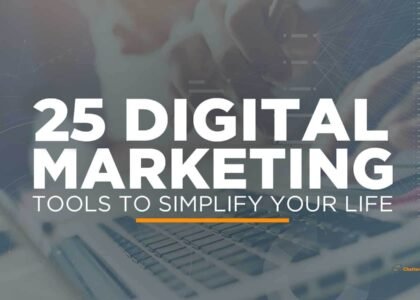Crafting an Effective Website for Your Digital Marketing Agency:
In today’s digitally driven world, a strong online presence is imperative for the success of any business, and digital agency are no exception. Digital marketing agency’s website serves as the virtual storefront, the digital calling card, and the primary point of contact for potential clients. It’s not just a place to showcase your services; it’s a powerful tool for attracting leads, demonstrating expertise, and ultimately, driving conversions. In this article, we’ll explore the essential elements of a successful digital marketing agency website and strategies to ensure it stands out in a crowded online landscape.
Why Your Website Matters:
Your website is often the first impression potential clients have of your agency. It’s where they go to learn more about your services, gauge your credibility, and decide whether or not to do business with you. A well-designed, user-friendly website can make all the difference in attracting and retaining clients in today’s competitive digital marketing landscape.
Key Features of an Effective Digital Marketing Agency Website:
- Clear Branding: Your digital marketing agency website should reflect your agency’s brand identity, including your logo, color scheme, and tone of voice. Consistency across all elements of your site helps to reinforce your brand and establish trust with visitors.
- User-Friendly Design: A user-friendly design is essential for keeping visitors engaged and guiding them through your site. Intuitive navigation, clear calls-to-action, and responsive design are all key elements of a user-friendly website.
- Compelling Content: Content is king in the digital marketing world, and your website should reflect that. High-quality, engaging content that speaks directly to your target audience is essential for capturing their attention and keeping them on your site.
- Search Engine Optimization (SEO): Optimizing your website for search engines is crucial for attracting organic traffic. This includes keyword research, on-page optimization, and off-page optimization strategies to improve your site’s visibility in search engine results.
- Social Proof: Testimonials, case studies, and client reviews provide social proof of your agency’s expertise and credibility. Incorporating social proof into your website helps to build trust with potential clients and encourages them to take action.
- Lead Generation: Your website should be designed to capture leads and convert visitors into clients. This includes strategically placed contact forms, lead magnets, and other conversion-focused elements to encourage visitors to take the next step.
Strategies for Success:
- Know Your Audience: Understand who your target audience is and what they’re looking for in a digital marketing agency website. Tailor your website content and messaging to address their needs and pain points.
- Highlight Your Unique Selling Proposition (USP): Clearly communicate what sets your agency apart from the competition. Whether it’s your unique approach, specialized services, or track record of success, make sure visitors know why they should choose your agency over others.
- Showcase Your Work: Use your website to showcase past projects, case studies, and client testimonials. Providing tangible evidence of your agency’s capabilities and results can help build trust with potential clients and convince them to choose your agency.
- Optimize for Mobile: With more people accessing the internet from mobile devices than ever before, it’s essential that your website is optimized for mobile. This means ensuring that your site is responsive and loads quickly on all devices.
- Track and Analyze Performance: Use analytics tools to track visitor behavior, traffic sources, and conversion rates on your website. This data can provide valuable insights into what’s working and what’s not, allowing you to make informed decisions about how to improve your site.
Conclusion:
In conclusion, your digital marketing agency website is a critical component of your digital marketing agency’s success. By incorporating key features such as clear branding, user-friendly design, compelling content, and effective lead generation strategies, you can create a website that not only attracts visitors but also converts them into loyal clients. Remember to continually monitor and optimize your website to ensure it remains a powerful tool for growing your agency’s business.
FAQs about Digital Marketing Agency Websites:
1. What are the essential components of a digital marketing agency website?
Essential components include a well-designed homepage, an informative about us page, a comprehensive services section, a portfolio showcasing past work, a blog or insights section, and easy-to-find contact information.
2. How can I ensure my digital marketing agency website stands out from the competition?
To stand out, focus on creating unique and engaging content, showcasing client testimonials and case studies, optimizing for search engines, and providing exceptional user experience across all devices.
3. Is it necessary to regularly update content on my digital marketing agency website?**
Yes, regular content updates are crucial for maintaining relevance, engaging visitors, and improving search engine rankings. Fresh content also demonstrates your agency’s expertise and commitment to staying current in the industry.
4. How can I measure the effectiveness of my digital marketing agency website?
You can measure effectiveness through metrics such as website traffic, bounce rate, conversion rate, keyword rankings, and ROI from digital marketing campaigns. Utilize analytics tools to track these metrics and make data-driven decisions for optimization.
5. What are some common mistakes to avoid when designing a digital marketing agency website?
Common mistakes include poor navigation, lack of clear calls-to-action, slow loading times, outdated design, and neglecting mobile optimization. Avoiding these pitfalls ensures a positive user experience and maximizes the effectiveness of your website.








